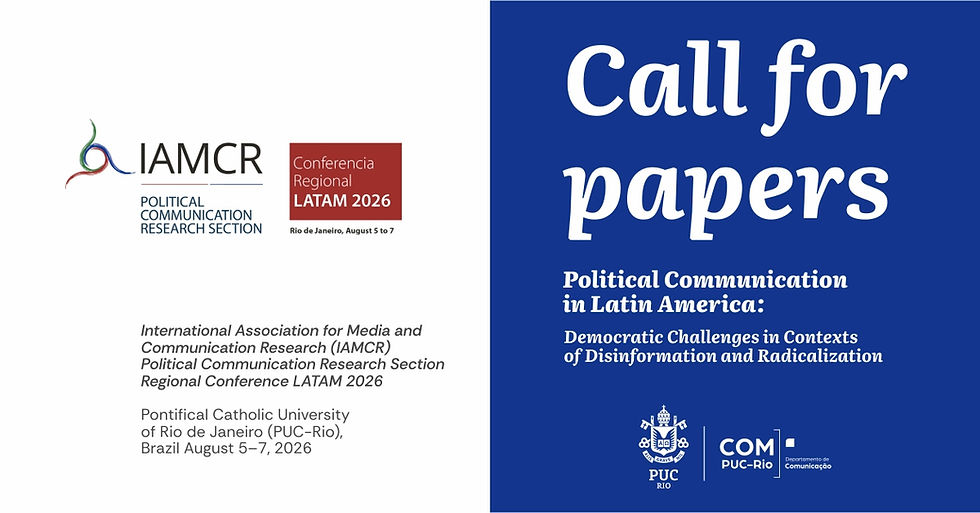The Digital Radical Right in Latin America
- Arthur Ituassu

- 5 de mai. de 2025
- 1 min de leitura
Atualizado: 19 de mai. de 2025
This report is a partnership between CLAS/UA and PPGCOM/PUC-Rio and explores the role of digital media in the rise and consolidation of radical right-wing politics in Latin America.
This report is the result of a collaborative effort between the Department of Communication at the Pontifical Catholic University in Rio de Janeiro and the Center for Latin American Studies at the University of Arizona. It explores the role of digital media in the rise and consolidation of radical right-wing politics in Latin America, focusing on the cases of Jair Bolsonaro (Brazil), Nayib Bukele (El Salvador), José Antonio Kast (Chile), Rodolfo Hernández (Colombia), and Javier Milei (Argentina). The analysis presented here was developed with graduate and undergraduate students from the University of Arizona during the Spring 2024 semester. Their contributions were integral to researching and structuring the discussions on each political figure, highlighting the intersections between digital strategies, disinformation, and political radicalization in the region. By examining these leaders’ campaigns and forms of governance through a comparative perspective, this report seeks to contribute to the broader discussion on how digital
media reshapes political landscapes and democratic institutions in Latin America.
The complete report is available here.





Comentários